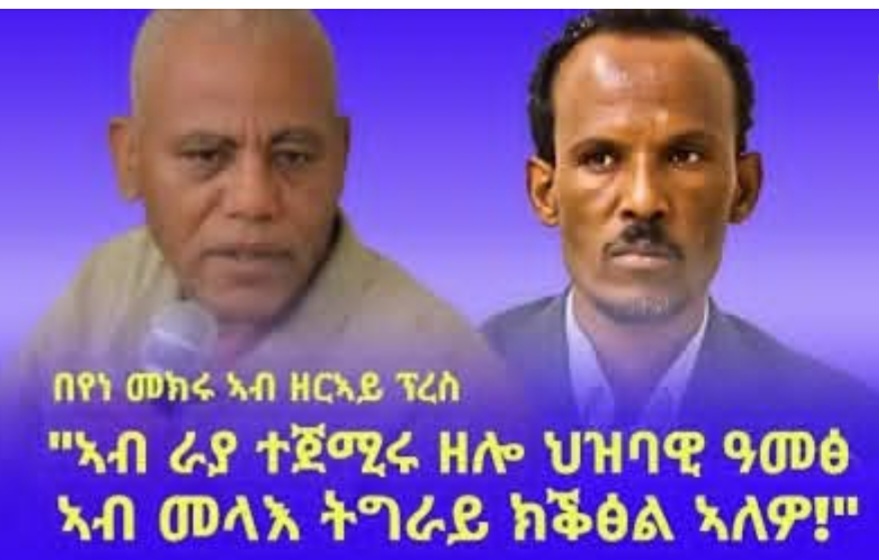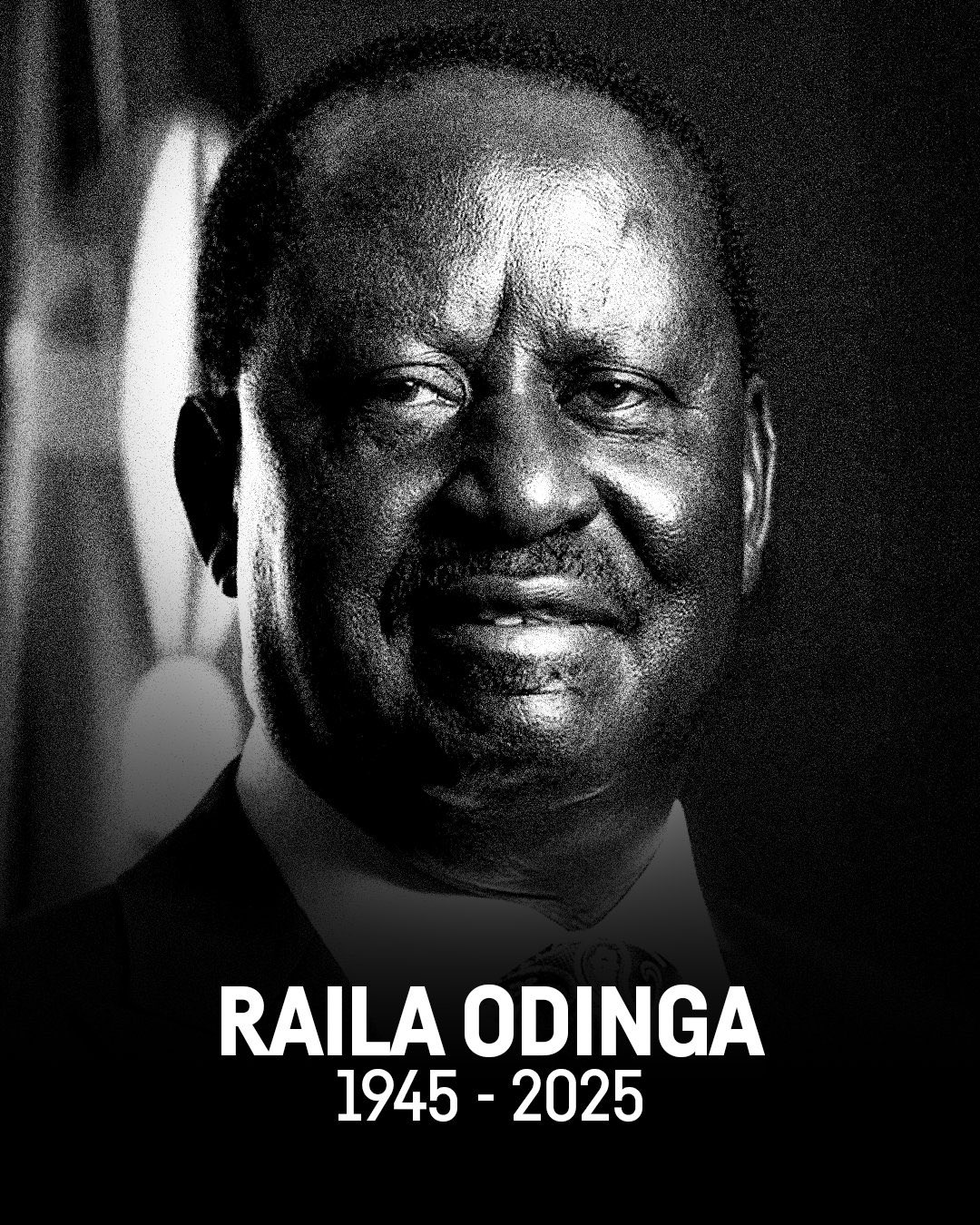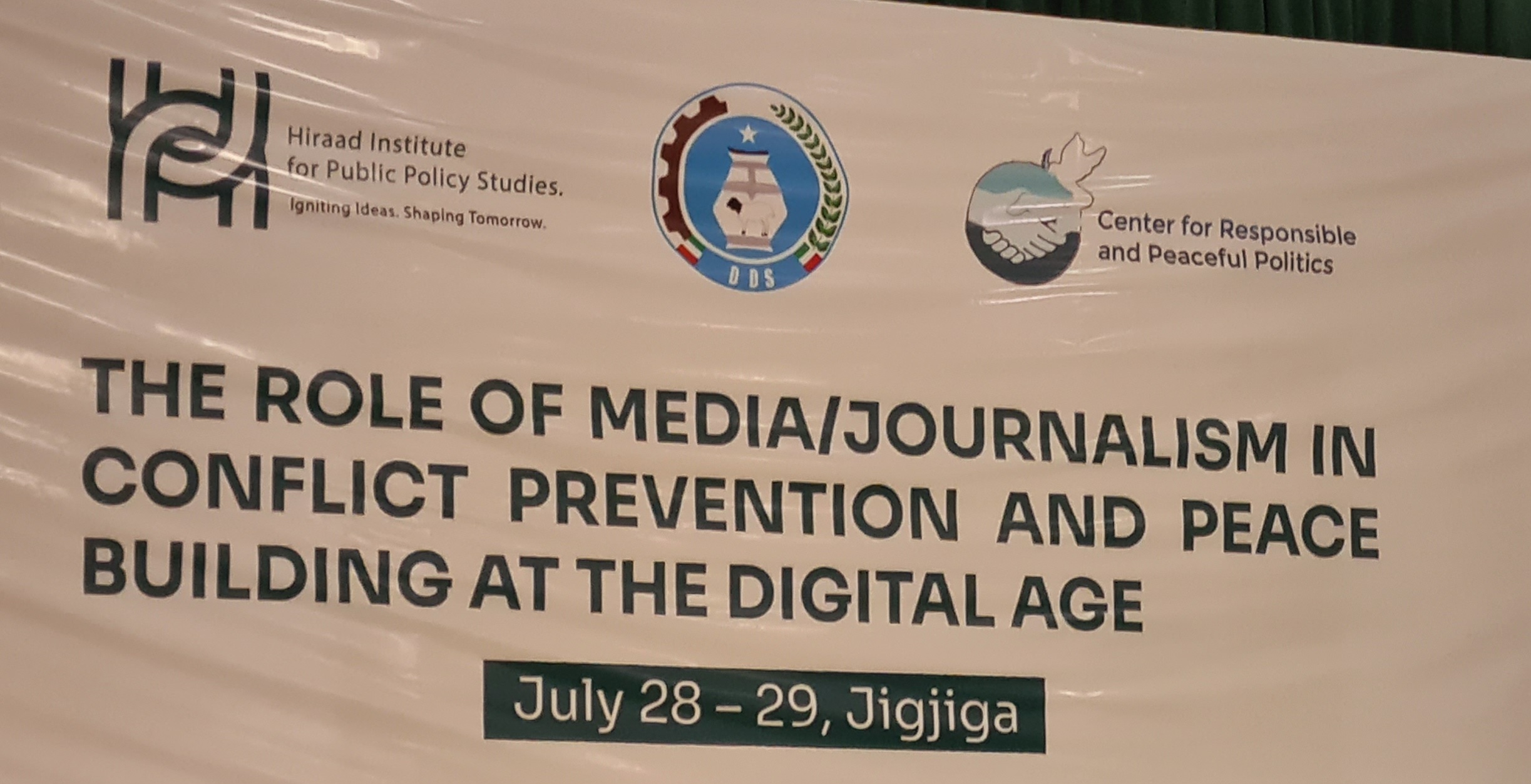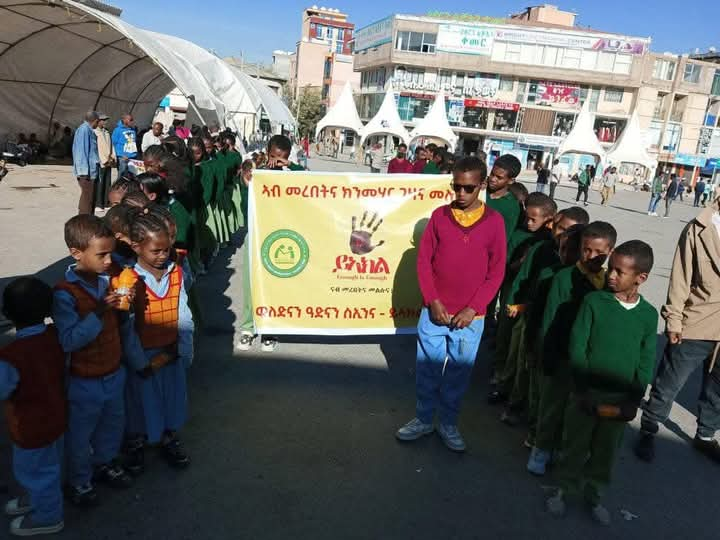“Beyene Mekuru Speaks on Tigray’s Future: Raya Dispute, TPLF Strategy, and Regional Tensions”
Mekelle — Zeray Press Media sat down with political analyst Beyene Mekuru for an in-depth discussion on the shifting dynamics of Tigray politics. The interview, broadcast this week, touched on sensitive topics ranging from the Raya territorial dispute to the future of the Tigray People’s Liberation Front (TPLF) under Lt. Gen. Tadesse Werede, as well as the prospects of new parties and the looming possibility of renewed war between Ethiopia and Eritrea.
On the Raya Crisis
Beyene described the Raya dispute as “the most immediate and unresolved test of Tigray’s territorial integrity.” He argued that the area is not only symbolic but also strategic for Tigray’s future political stability. “If Raya remains contested,” he noted, “it risks becoming a permanent fault line between Amhara and Tigray, undermining peace accords and straining Tigray’s internal politics.”
The analyst warned that the crisis could divide Tigray’s leadership between those advocating compromise and those insisting on full restoration of the pre-war borders. “Failure to resolve Raya equitably,” he added, “may leave Tigray politically fragmented.”
On “Tsimdo” and TPLF Leadership under Tadesse Werede
Turning to the question of “Tsimdo” — a phrase used to describe new political strategies and internal alignments within the TPLF — Beyene suggested that the recent leadership change in Mekelle signals both opportunity and risk.
He observed that Lt. Gen. Tadesse Werede, who replaced Getachew Reda in April, faces pressure from multiple fronts: internally from party factions, and externally from the federal government and Eritrean hostility.
“Werede’s challenge,” Beyene said, “is to restore the confidence of Tigrayans in the interim administration while also negotiating from a position of strength with Addis Ababa. The success or failure of ‘Tsimdo’ will determine whether Tigray emerges more united or more polarized.”
On Solidarity Party’s Strategic Role
Beyene, who is associated with the Solidarity Party, emphasized the need for an alternative to the dominance of the TPLF. He argued that the people of Tigray deserve “pluralism, not monopoly.”
According to him, the Solidarity Party seeks to provide a platform for displaced persons, youth, and the diaspora. “Our mission,” he said, “is to put justice, reconstruction, and inclusive governance at the center. Without new voices, Tigray risks repeating the same political cycle.”
On Possible Ethio-Eritrea War and Tigray’s Position
The discussion closed with concerns about rising tensions between Ethiopia and Eritrea. Beyene did not rule out the possibility of renewed hostilities, cautioning that Tigray would be the first casualty of any escalation.
“Tigray is geographically and politically caught between Asmara and Addis Ababa,” he said. “Any war would endanger civilians, stall reconstruction, and once again make the region the battlefield of two rival powers.” Beyene stressed that Tigray must prepare diplomatically as much as militarily. “We cannot afford to be a pawn in someone else’s conflict. Our position must be one of protecting our people first.”
A Region at a Crossroads
The interview underscored Tigray’s uncertain future. With border disputes unresolved, political leadership in transition, and external threats mounting, the analyst portrayed the region as being at a crossroads.
As Beyene concluded, “The choices we make in the next few months whether on Raya, on party politics, or on external relations will define Tigray’s path for decades to come.”






